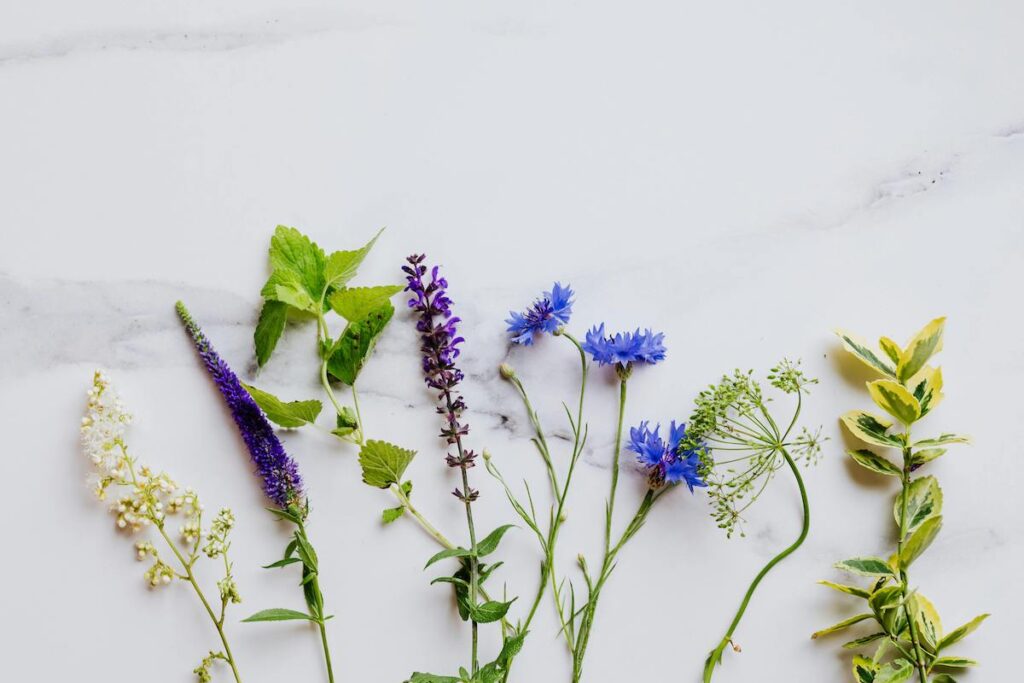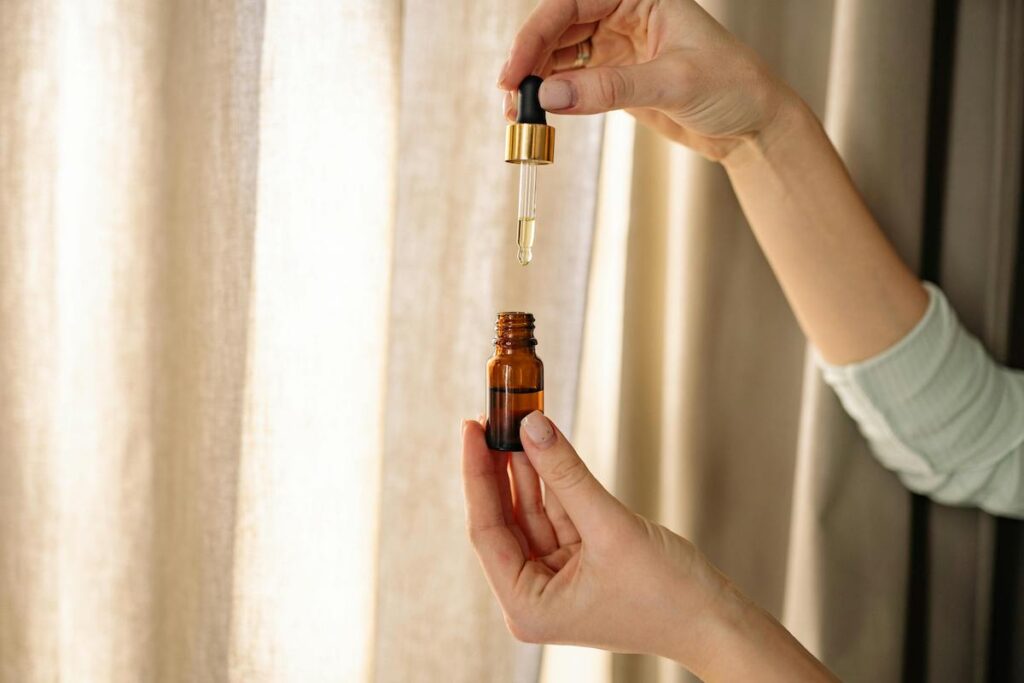Pollution is unfortunately a constant in our environment and affects our daily lives in many ways. Our hair is particularly sensitive to the disastrous effects of pollution, and you don't have to live in a city centre to see the damaging effects on your hair and scalp: air pollution, pollutants such as heavy metals in the water, and even our home sweet home, with its detergents, paints and other toxic products, is not the protective cocoon we might hope for to shield our precious locks from external aggression.
Pollution and the scalp: what are the consequences?
Our skin and scalp are our first line of defence against a polluted environment. The air we breathe can be laden with nanoparticles so fine that they penetrate the pores of the epidermis, including the scalp. The fine particles produced by exhaust fumes and industrial or agro-industrial waste (pesticides) then accumulate in the body. Our skin is protected by our clothes, but our hair and scalp are on the front line when it comes to dealing with this invisible enemy.
Pollution has many consequences for the scalp:
- Dehydrated, hyper-dry scalp, "stripped" by micro-particles.
- Dry dandruff is often associated with stubborn itching, which needs to be treated with appropriate, gentle, moisturising care products.
- On the other hand, impurities that accumulate in greasy deposits encourage seborrheic dermatitis: and oily dandruff, which is just as difficult to eliminate without a repairing hair care product.
- Irritated, itchy scalp, scalp diseases such as folliculitis or psoriasis.
- Hair loss caused by oxidative stress : nanoparticles penetrate the hair follicle using a mechanism comparable to that of androgenetic alopecia ie miniaturisation of the hair follicle, thinning of the hair, stopping hair production.
Pollution and hair health: what are the consequences?
Lead, copper, zinc and cadmium are all part of the heavy metals found in everyday products and foods. In infinitesimal doses, they are not only useful but essential to our bodies.
It is their excessive concentration resulting from human activity that is found in high doses in the air but also in the water we use to ... wash our hair!
- Dull, lifeless hair: healthy hair is shiny, supple and easy to style. Its scales are smooth and closed. The hair fibre is protected by the hydrolipidic film formed by the sebum naturally secreted by the sebaceous glands in the scalp. The cuticle is made up of a multitude of overlapping scales that form a protective barrier around the cortex and medulla. Hair is alive and as such, each cell is dependent on internal and external factors for its health.
However, by dint of ill-adapted hair care and repeated cosmetic manipulations (chemical colouring, straightening), the hair fibre becomes damaged. The scales open up and the hair, porous and fragile, no longer responds to any hair care routine, however judicious... and pollutants insidiously infiltrate. The hair is saturated with residues that accumulate around each fibre.
Result: dull hair, brittle hair, the ends are dry and split, the hair mass diminishes and the hair becomes progressively thinner

Dull, brittle hair, premature greying: what if it were pollution?

- Grey hair : certain studies even establish a link between premature greying of the hair and ambient air pollution, especially associated with tobacco (cigarette smoke being another type of pollutant) and a poor diet.
How can you protect your hair and scalp from the harmful effects of pollution?
Tips and advice from Centre Clauderer for shiny, healthy hair despite pollution

A hat or scarf to protect your hair while staying stylish!

- Protect your head with a hat, cap or scarf whenever you go out, and not just in the city, because air pollution is everywhere.
- Opt for a hair routine based on gentle, nourishing natural care products to repair the hair fibre from root to tip and keep the scalp clean and healthy. For dry, damaged and devitalized hair that is difficult to detangle, a repairing mask applied before shampooing is one of the anti-pollution recommendations from Clauderer Specialists: on dry hair, the active ingredients penetrate more easily and nourish the hair deep down; on hair that is already wet after shampooing, the hair is still full of water, so there is less mechanical 'space' for the useful active ingredients.
- More information If hair absorbs so much pollution, it's thanks to or because of its high hydrophilic capacity (it absorbs water up to 30% of its weight) and lipophilic capacity (it absorbs fats). French inventors have taken advantage of these specific properties to make it a natural pollution remover.
- Just a shampoo? Yes, but a shampoo without sulphates or chemical surfactants, with a gentle plant-based cleansing base to protect the scalp and respect the hair fibre. Textured hair will prefer a richer, moisturising cream cleanser: ideal for boosting the hydration of an often dry scalp and fragile hair fibre with specific needs.
- For Afro hair, protective hairstyles are welcome, as long as they are spaced out.
- Scalp irritated by pollution: gently soothe and detoxify. Clauderer soothing milk combined with a massage (note: an effective scalp massage moves the skin of the skull, not the fingers) to eliminate impurities and other unwanted residues. Use before each shampoo, with a pause beforehand, to restore the comfort of a healthy, soothed and purified scalp. Effective for all hair types.
- Scalp that gets greasy too quickly: sage, verbena and lavandin are safe, effective allies for regulating excess sebum without damaging the fragile balance of the scalp.
- Overly dry scalp: to combat dryness, moisturise with a hair lotion enriched withvegetable oils such as sweet almond or wheat germ.
- As far as possible, we do a thorough clean-up to eliminate from our daily lives products containing sulphates, parabens and other aggressive agents contained in detergents, certain packaging or plastic products, and also certain cosmetic products.
- Dull hair: a little lemon or cider vinegar in the last rinse water is an effective grandmother's trick for removing the last traces of residue and giving hair a natural shine.

Beautiful hair despite pollution: the power of plants

It's hard to escape the damaging effects of pollution on our hair and scalp, no matter where we live. A few simple steps are all it takes to keep your hair looking beautiful:
- remain vigilant about your exposure to pollutants, including within your own home,
- protect your hair and scalp when outdoors
- choose a hair routine based on natural products suited to your hair type
Taking care of your hair to avoid damage caused by pollution isn't so difficult after all.

